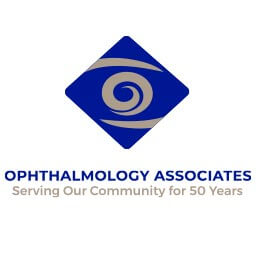How to Choose the Ideal Lens After Your Cataract Surgery
Posted by: Ophthalmology Associates of Fort Worth in Cataract Surgery

Cataracts are a common eye condition that mainly affects us as we gain wisdom and advance through life.
A cataract forms when the naturally clear lens in the eye becomes hazy. It can lead to blurred vision, difficulty seeing in dim light, glare sensitivity, and faded colors. Although treating cataracts is not generally considered an emergency, they can negatively impact the quality of life.
Cataract surgery is one of the most common surgical procedures performed today. The procedure is relatively simple: out with the old cloudy lens and in with a crystal clear lens implant.
While a skilled surgeon is a critical step in a successful surgical experience, of equal importance is choosing the correct intraocular lens to be implanted. Different types of lens implants offer different types of vision correction. Each lens implant has its advantages and disadvantages.

Understanding Cataract Lens Implants
Cataract lens implants, also known as intraocular lenses (IOLs), are lenses made in a factory that are surgically implanted in the eye to replace the clouded natural lens.
Designed to restore clarity to vision, these lenses can also significantly reduce the reliance on glasses or contact lenses after surgery.
Thanks to new technological advances, patients now have a wider range of cataract surgery lens implant options beyond traditional monofocal lenses, allowing for greater customization to meet specific visual requirements.
Types of Cataract Lenses
Monofocal Lenses
Monofocal lenses are the most common form of IOLs used in cataract surgery. These lenses are intended to give the best vision possible with the use of glasses such as bifocals or trifocals after cataract surgery. Although many patients will experience excellent uncorrected vision and only need readers, this is not the expectation with a monofocal IOL. This lens is perfect for the patient who would not be unhappy wearing glasses after surgery.
Pros of A Monofocal Lens:
- Cost-effective: These IOLs are covered by insurance, making them more accessible to a wide range of patients.
- Predictable results: Provide high clarity and quality of vision with glasses.
- Proven: These IOLs have a long history of effectiveness.
Cons of A Monofocal Lens:
- Dependence on glasses: Patients will still need to wear glasses for some or all activities at certain distances.
- Potential for interocular asymmetry: If implanted in both eyes, there’s a risk of interocular asymmetry, where one eye has better visual acuity than the other.
The monofocal IOL is the recommended implant in patients who have other underlying diseases of the eye (such as macular degeneration, corneal scarring, or optic nerve damage).
It also works well for individuals with good overall eye health and low levels of astigmatism.
Multifocal Lenses
Multifocal lenses are designed to correct vision at multiple distances.
By integrating different lens powers into a single IOL, dependence on glasses or contact lenses is eliminated or significantly reduced after cataract surgery.
How Multifocal Lenses Work:
In a multifocal lens, light is distributed across multiple focal points as it enters the eye. This enables the retina to receive images from various distances simultaneously for a more natural range of vision without the need for additional correction.
Compared to monofocal lenses, there are advantages and disadvantages of multifocal lenses:
Advantages:
- Independence or reduced dependence on wearing glasses or contact lenses for daily activities.
- A wider range of vision at multiple distances, including near, intermediate, and distance.
- Enhanced quality of life with improved vision across a broader range of activities..
Disadvantages:
- There is an out-of-pocket cost that is not covered by insurance.
- It may require a longer adjustment period.
- Potential for seeing halos around lights or experiencing glare, especially in low-light conditions.
Considerations To Make:
Here are a few considerations before choosing to go for multifocal lenses:
- Daily routine: What is your routine like? Do you spend most of your time reading, using a computer, or driving? Prioritize the vision zone you use most frequently.
- Budget: Multifocal IOLs are expensive. Identify the options that fit your budget while addressing your needs.

Toric Lenses
Toric lenses are a specialized type of IOL designed to correct astigmatism and improve vision at a distance.
People with astigmatism have blurred or distorted vision caused by a symmetric but irregular cornea curvature.
Because toric lenses have different powers in different meridians of the lens, this corrects the prescription and provides clearer, sharper vision.
Patients who may consider this cataract lens type will need to consider the following benefits and limitations:
Benefits of Toric Lenses:
- Sharper vision: This type of lens corrects blurred vision caused by astigmatism, improving clarity for near, far, and intermediate distances. This stable visual improvement also enhances quality of life.
- Reduced eye strain: Toric lenses alleviate the eye strain and headaches caused by astigmatism.
- Reduced dependence on glasses: For many patients, wearing glasses is no longer necessary for most daily activities other than over-the-counter readers for reading.
Limitations of Toric Lenses:
- Cost: The IOLs are more expensive than standard monofocal lenses and are not covered by insurance.
- Surgical Precision Required: Precise surgical techniques are crucial for optimal placement and alignment of the toric lens.
- Adjustment Period: Some patients may experience a period of adaptation as their eyes adjust to the new lenses. There’s also the rare chance of residual astigmatism after surgery, which may need further correction.
When it comes to the best candidates for toric lenses, these are individuals who:
- Significant astigmatism and cataract surgery will be required.
- Want to reduce their dependence on glasses or contact lenses.
- Engage in various visual tasks that require a clearer, undistorted field of vision.
Extended Depth of Focus (EDOF) Lenses
EDOF lenses are the newest type of IOLs designed to provide a continuous range of high-quality vision for patients undergoing cataract surgery.
Unlike traditional monofocal IOLs that provide clear vision at a single distance, an EDOF lens extends the range of clear vision, offering a broader focus without the need to wear prescription glasses while minimizing issues like halos and glare.
Advantages of EDOF Lenses:
- Continuous Range of Vision: This lens provides a seamless and continuous range of vision from all distances, reducing the need for multiple glasses.
- Reduced Visual Disturbances: Patients often experience fewer halos and less glare than multifocal lenses, especially in low-light conditions.
- Improved Quality of Life: Because they offer a broader range of vision, EDOF lenses enable patients to perform various daily activities such as computer work comfortably and driving, thereby improving quality of life.
Considerations for EDOF Lenses:
- Newer Technology: EDOF IOLs are new, and long-term studies are still ongoing, especially on their long-term effectiveness. If you’re considering this type of lens, it’s important to discuss it with your surgeon thoroughly.
- Cost: EDOF lenses can be more expensive than monofocal lenses.
- Near vision: The effectiveness of EDOF IOLs can vary depending on your eye health, anatomy, and visual needs. Some patients may experience a wider range of clear vision than others.
- Individual Variations: The effectiveness of EDOF IOLs can vary depending on your eye health, anatomy, and visual needs. Some patients may experience a wider range of clear vision than others.
While EDOF lenses offer a balanced and extended range of vision, patients seeking this type of vision correction solution need to consider the following:
- Lifestyle: This IOL is best for individuals who lead an active lifestyle and engage in various visual tasks, such as sports and outdoor activities.
- Daily Routine: Greatly helps perform regular tasks across different vision zones, like cooking, working on a computer, and driving.
- Eye Health: Patients with healthy eye structures without significant retinal or corneal issues are excellent candidates for EDOF lenses.
Factors to Consider When Choosing a Cataract Lens
Choosing the right lens implant is a critical decision that can significantly impact your quality of life. It requires a thorough discussion with your ophthalmologist about the important factors that will affect your choice, such as:
Visual Needs and Lifestyle
Your occupation, hobbies, reading habits, and digital device usage greatly influence your lens choice. Patients with active lifestyles or those who prioritize freedom from glasses may benefit from multifocal lenses that provide enhanced visual capabilities at multiple distances.
Goals and Expectations
What are your goals and visual outcome preferences? Some prioritize clear vision at certain distances, while others want to be free from wearing glasses for daily activities.
Your eye doctor will be able to provide realistic expectations which will help you choose the best lens for your goals.
Eye Health
Your current eye health, including pre-existing eye conditions such as astigmatism, macular degeneration, or glaucoma, will greatly influence your lens selection.
Budget and Insurance Coverage
How much you can afford is usually a big factor. Consider the cost implications of the different lenses and find a balance between what you can afford and your goals for your eyesight.

Making the Right Choice: Your Path to Clear Vision
Choosing the right cataract lens type is an important decision that can greatly enhance your daily life and visual experience.
Your current eye health, lifestyle, budget, and visual requirements all play a role in determining which lens is best for you. Discussing this with your surgeon will make the decision easier.
Whether it is a monofocal, multifocal, toric, or EDOF lens, Ophthalmology Associates is here to help you navigate these options and find the perfect lens for your needs.
Our team of experienced ophthalmic surgeons will provide personalized advice and realistic expectations to guide you through this important decision.
So don’t wait any longer to get the vision you desire and deserve. Contact us via our website or phone at 817-332-2020 to schedule your appointment and improve your quality of life with a brighter and clearer future.
